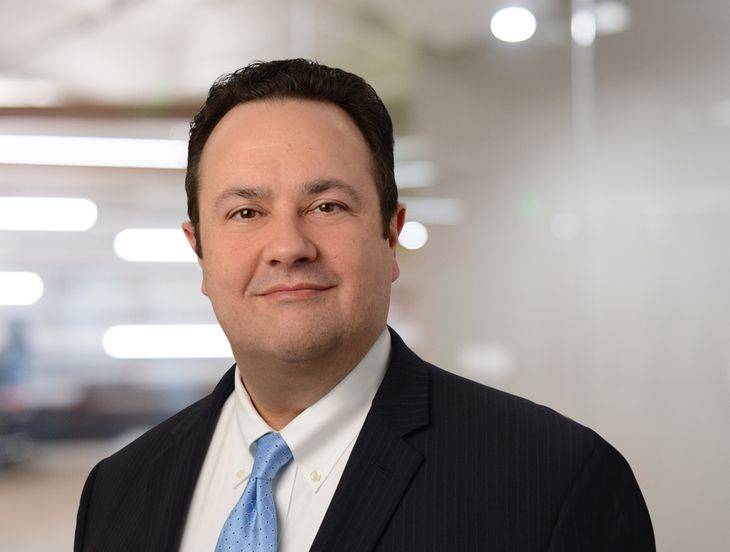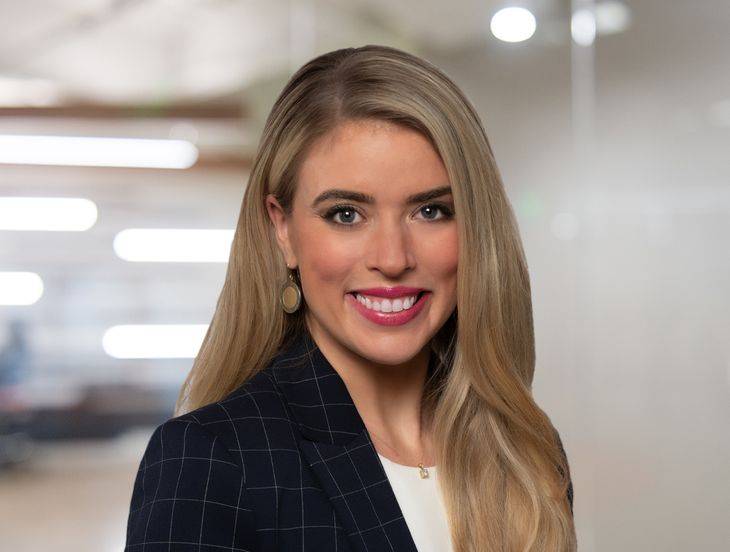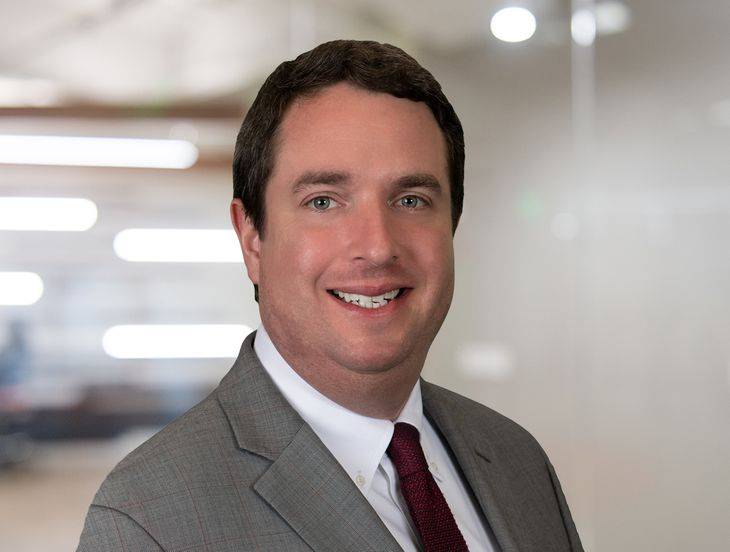September 2020: The Top 16 Labor And Employment Law Stories
Insights
10.02.20
It’s hard to keep up with all the recent changes to labor and employment law. While the law always seems to evolve at a rapid pace, there have been an unprecedented number of changes for the past few years—and this past month was no exception.
In fact, there were so many significant developments taking place during the past month that we were once again forced to expand our monthly summary well beyond the typical “Top 10” list. In order to make sure that you stay on top of the latest changes, here is a quick review of the Top 16 stories from last month that all employers need to know about:
- What Employers Need To Know About SCOTUS Nominee Amy Coney Barrett – President Trump officially selected Judge Amy Coney Barrett to fill the empty seat on the Supreme Court bench on September 26, filling the vacancy caused by Justice Ruth Bader Ginsburg’s death. Assuming she is confirmed by the Senate, Judge Barrett’s appointment will have a long-lasting impact on the future of the SCOTUS, cementing a six-Justice majority of conservative jurists. There is a great deal of emotion and controversy surrounding this selection, but employers may still be curious about how Barrett would treat workplace law cases that come before her if she is elevated to the Supreme Court. Similar to the way we examined the nominations of Justice Sonia Sotomayor in 2009, Justice Elena Kagan in 2010, Justice Neil Gorsuch in 2017, and Justice Brett Kavanaugh in 2018, we now turn our attention to Judge Barrett (read more here).
- Proposed Federal Rule Aims To Make It Easier To Classify Workers As Independent Contractors – The Department of Labor issued a new proposed rule on September 22 that would make it easier for workers to be classified as independent contractors. What Does It Mean? The proposed test – which would take effect after a 30-day comment period and DOL publishing the final rule – looks to the “economic reality” of each workplace relationship by weighing five simple factors and determining whether the worker is in business for themselves (and thus a contractor) or economically dependent on the hiring entity (employee). Two of the five factors are identified as the “core factors” in the analysis: 1) the extent of control exercised over key aspects of the work; 2) and the opportunity for profit or loss. What Should You Do? Stay tuned for developments over the next month (and perhaps beyond) to see if the rule goes into effect or is stalled by litigation. If it does take effect, it may be time to revisit your business models to determine whether you can take advantage of the rule – while keeping in mind any state laws that may create a higher barrier for independent contractor status (read more here).
- Federal Judge Strikes Down Key Parts Of New Joint Employer Rule – In a move sure to frustrate employers and usher in a wave of confusion, a New York federal court judge struck down critical portions of the Labor Department’s new joint employer rule that went into effect a few months ago. Concluding that the agency’s rule has “major flaws,” U.S. District Judge Gregory Woods decided that the rule did not comport with the Fair Labor Standards Act (FLSA). The September 8 ruling tosses out the new standard that had applied to “vertical” employment relationships (when staffing company or subcontractor workers are contracted to work with another entity, for example), while keeping intact the rarer “horizontal” relationships between related entities that employ the same worker – which was not significantly changed by the final rule. Affected employers may have to chart a more difficult course in order to ensure they are not deemed liable in joint employer situations (read more here).
- Labor Board Instructs Employers That Non-Work Political Activity Isn’t Protected By Federal Law – As the Nation’s political season continues to intensify, the NLRB has issued a timely advice memo highlighting the test for determining when political activity is protected under federal labor law. In a recently issued advice memo released on September 14, the Division of Advice concluded that political activity with no “nexus to a specifically identified employment concern” was not protected by Section 7 of the National Labor Relations Act. What do employers need to know about this development, especially in light of today’s tumultuous political climate? (read more here)
- Labor Department Revises COVID-19 Leave Regulations, Broadening Coverage For Healthcare Workers And Clarifying Other Employer Obligations – Employers of healthcare providers will soon be required to provide paid sick leave and partially paid family leave to a broader category of employees, and all employers subject to the law now have clarification on a number of other obligations, thanks to a revised set of regulations released by the Labor Department. After a federal court judge recently knocked down the agency’s first attempt to provide employers with practical direction in complying with the Families First Coronavirus Act (FFCRA), the Labor Department issued a second set of rules on September 11 that in some instances revise and in other instances clarify employer compliance duties. Here are the key changes and clarifications, which are slated to go into effect on September 16, that employers need to know about (read more here).
- New California Pay Data Reporting Obligations Aimed At Closing Pay Gap – Governor Newsom signed into law a requirement that private employers with 100 or more employees must annually report to the state detailed pay data categorized by gender, race, and ethnicity. SB 973, signed into effect late on September 30, will require covered businesses to report this data to the Department of Fair Employment and Housing (DFEH) on March 31, 2021 and every March 31 thereafter. That date will be here before you know it, so California employers should begin to take compliance steps at once. What do you need to know about this significant new obligation? (read more here).
- California Dramatically Expands Coverage Under State Leave Law, Creating New Obligations For Employers – Governor Newsom signed legislation on September 17 that will greatly expand the California Family Rights Act in a manner that will impact both small and large California employers. The CFRA requires covered employers to provide up to 12 weeks of unpaid leave during each 12-month period for purposes of family and medical leave. Senate Bill 1383 expands CFRA to apply to employers with five or more employees, and expands the scope of “family members” for whom employees can take leave to include many additional categories. It will go into effect on January 1, 2021 – giving you a short window of time to take action and develop compliance plans. The first of the year will be here before you know it, so the time to take action is now (read more here).
- California Enacts New COVID-19 Employer Reporting Requirement – Governor Newsom signed into law on September 17 a bill that will require public and private California employers to provide detailed notices to employees when there is a COVID-19 exposure in the workplace, and to provide notice to local public health departments for COVID-19 “outbreaks.” AB 685 (Reyes), which will go into effect on January 1, 2021, uses vague language and three different definitions of who must receive notice, so employers will need to pay close attention in order to be in compliance come January (read more here).
- California Enacts Workers’ Compensation Presumption That Applies To Most Employers With COVID-19 “Outbreaks” – California Governor Gavin Newsom signed legislation on September 17 that establishes a workers’ compensation presumption that will apply to most employers in the state that have a COVID-19 “outbreak” through 2022 – meaning it is much more likely that worker infections will be covered under workers’ comp coverage. This legislation, Senate Bill 1159, will shift the burden of proof to presume that covered workers who contracted COVID-19 did so at work, unless the employer can prove otherwise. The new legislation also enacts a rebuttable presumption that applies to first responders and certain health care workers. Finally, the law requires employers to provide notice to their workers’ compensation carrier of employees who test positive for COVID-19. SB 1159 was enacted as an “urgency” measure and therefore went into effect immediately. What do California employers need to know about this new law? (read more here)
- What Florida Employers Need To Know About Latest Re-Opening Order – Florida Governor Ron DeSantis issued an executive order pre-empting any local COVID-19 ordinance that prevents a business from operating or an individual from working, or that allows restaurants to operate at a minimum of 50% capacity. Fisher Phillips has reviewed Executive Order 20-244, which is summarized below. The September 25 order brings the entire state of Florida into Phase 3 of the governor’s economic recovery plan. This includes the South Florida counties of Miami-Dade, Broward, and Palm Beach, which were previously eased into the Governor’s Phases 1 and 2 plans after the rest of the state. The new order eliminates the previous restrictions imposed in the Governor’s Phase 1 and Phase 2 orders, providing that all businesses and services may reopen at full capacity, despite any county or city orders that say otherwise (read more here).
- NYC Employers Must Comply With New Safe And Sick Leave Obligations – Just days before New York’s statewide paid sick leave law (NYPSL)takes effect on September 30, the New York City council passed a suite of amendments to NYC’s existing Earned Safe and Sick Leave Law (ESSL), in part aligning safe and sick leave obligations with the impending NYPSL and in part creating new obligations under the ESSL. The amendments to the ESSL were signed into law by Mayor DeBlasio on September 28 and take effect on September 30. Meanwhile, the state has not yet issued any guidance or regulations on NYPSL, leaving employers with many unanswered questions with respect to their obligations under the state safe/sick leave law due to ambiguities in the statute’s language. Despite many unknowns regarding NYPSL, it is clear that employers in NYC must take immediate action to comply with the new obligations under the ESSL created by the recent amendments (read more here).
- Indiana Set To Advance To Final Stage Of Governor Holcomb’s “Back On Track” COVID-19 Plan – Encouraged by the drop in the COVID-19 positivity rate across the state and a decline in the overall number of new cases being reported (per 100,000 people), Governor Holcomb issued an executive order announcing that Indiana can move to the final stage of reopening as of September 26. Stage 5 of the “Back On Track” COVID-19 plan allows all businesses to reopen and operate while continuing to require a few strategic and critical measures to protect Hoosiers. Here are a few things Indiana employers need to know about this latest development (read more here).
- Keep It Neutral: Proposed Guidance Calls For Stricter Test When Evaluating Employer Support Of Union Activity – The NLRB’s General Counsel recently released a guidance memorandum advising the Board to apply a stricter standard when evaluating if an employer’s support for union organizing activities violates the National Labor Relations Act. This change would implement a single “more than ministerial aid” standard for the Board’s evaluation of employer support for both pre-certification union activities and employee de-certification activities. The September 4 guidance provides examples of employer conduct that would be unlawful under the stricter standard, and takes specific aim at pre-certification neutrality agreements, identifying provisions that would constitute impermissible support. If adopted by the full Board, the new standard would clarify the amount of support employers can give to a union before it is the exclusive bargaining representative – and would especially create confusion for cannabis employers across the country (read more here).
- Employees Win Latest California Bag Check Case – But Court Leaves One Final Cliffhanger On The Compensability Of Closing Tasks – The long-fought bag-check battle against Apple is coming to an end, and the employee class won a major victory in California when a federal court of appeals ruled that the company must pay its workers for the time spent during mandatory anti-theft searches at the end of their shifts. Following the California Supreme Court’s decision in February that concluded, among other things, that an element of employee choice whether to engage in an activity does not by itself make the time non-compensable, the 9th Circuit Court of Appeals reversed the lower court’s 2014 rulings in favor of Apple and directed the trial court to enter judgment in favor of the employee class. After the September 2 decision, the only question that remains open for most California employers is whether there might exist some type of de minimis doctrine under California law that would permit employers to avoid paying workers for short and occasional tasks, albeit one that is more limited than the federal canon (read more here).
- Federal Contractors: Key Points In New Executive Order On Combating Race And Sex Stereotyping – When President Trump issued an executive order on September 22 on “Combating Race and Sex Stereotyping,” the federal contractor community was concerned about what new requirements might be added to their already full plates. Fortunately, most of the executive order addresses federal government agency requirements. However, there are two key points of which the federal contractor community must be aware:
1. New contract clause required for contracts entered into on or after November 21, 2020; and
2. Upcoming regulations regarding diversity training, workshops, or similar programs to ensure the materials do not “inculcate” in the contractor’s employees “any form of race or sex stereotyping or race or sex scapegoating” (read more here). - Thousands Of Government Contractors Slated To Be Evaluated As Feds Release FY2020 Audit Scheduling List – In keeping with the promise to make the agency more transparent, the Office of Federal Contract Compliance Programs just released a list of over 2,000 federal contractors that will be soon subject to compliance reviews. By being included on the 2020 Corporate Scheduling Announcement Letter (CSAL) list, 2,250 supply and service establishments and 200 construction contractors now have a minimum 45-day courtesy notification before the OFCCP will begin sending OMB-approved scheduling letters. What do employers need to know about this development? (read more here)
If you have any questions about these developments or how they may affect your business, please contact your Fisher Phillips attorney.
This Legal Alert provides an overview of specific legal developments. It is not intended to be, and should not be construed as, legal advice for any particular fact situation.
Related People
-
- George D. Adams
- Partner
-
- Michelle I. Anderson
- Partner
-
- Cheryl L. Behymer
- Senior Counsel
-
- Melissa Camire
- Partner
-
- Myra K. Creighton
- Partner
-
- Benjamin M. Ebbink
- Partner
-
- Gabrielle Giombetti
- Partner
-
- Alexa Greenbaum
- Associate
-
- Marty Heller
- Partner
-
- Todd A. Lyon
- Partner and Labor Relations Group Co-Chair
-
- Richard R. Meneghello
- Chief Content Officer
-
- John M. Polson
- Chairman & Managing Partner
-
- Phillip Simpler
- Partner
-
- John K. Skousen
- Senior Counsel
-
- Hannah Sweiss
- Partner
-
- A. Kevin Troutman
- Senior Counsel
-
- Alexander A. Wheatley
- Partner
-
- Sheila M. Abron
- Partner
-
- Arthur M. Wolfson
- Partner
Service Focus
- Affirmative Action and Federal Contract Compliance
- Employee Leaves and Accommodations
- Employment Discrimination and Harassment
- Immigration
- Labor Relations
- Litigation and Trials
- Pay Equity and Transparency
- Counseling and Advice
- Wage and Hour
- Workplace Safety and Catastrophe Management


















